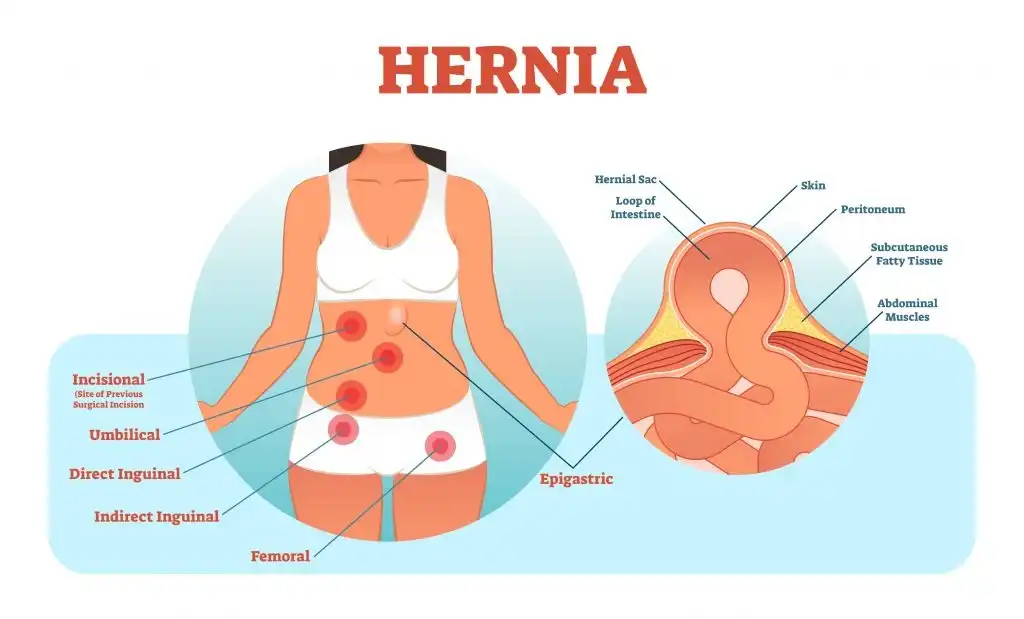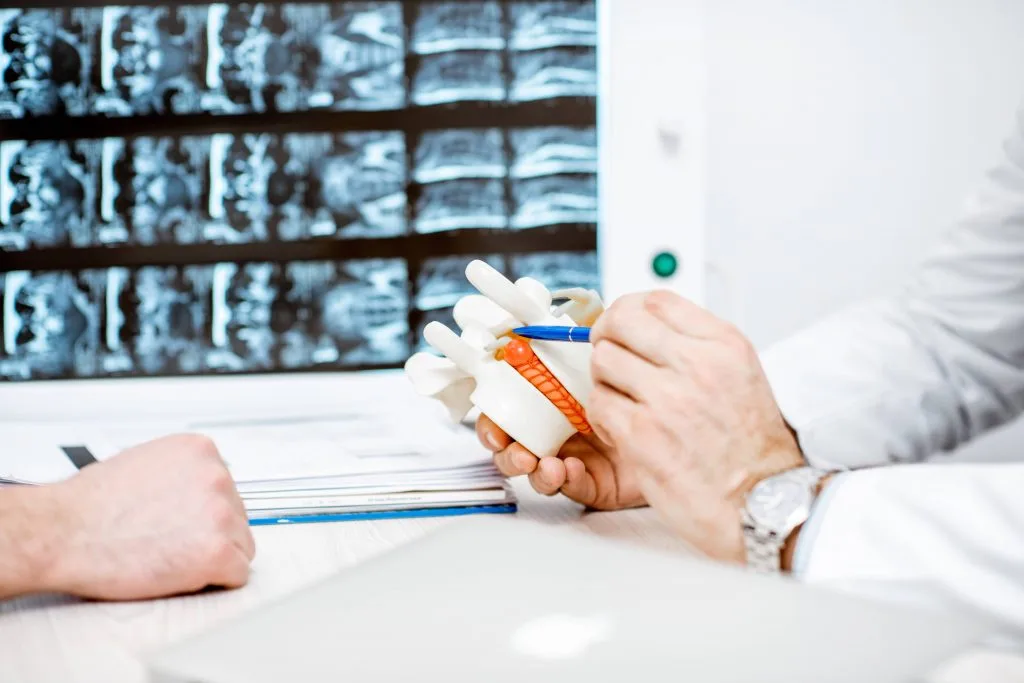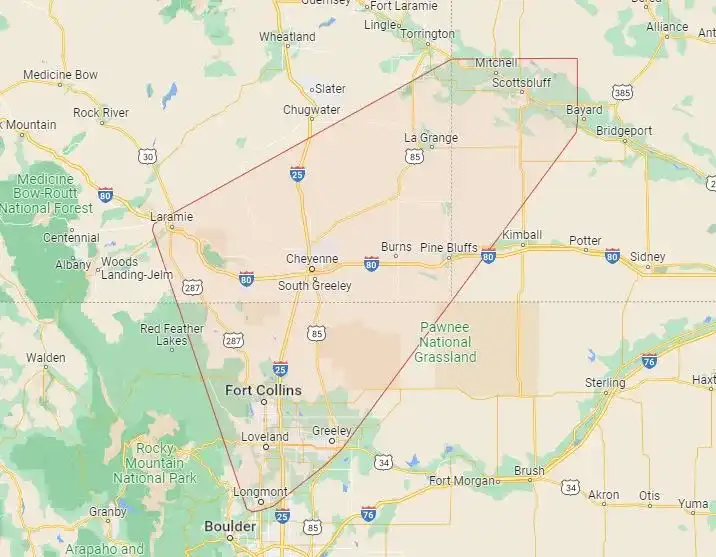
This condition, often treated by a
hernia surgeon
, typically arises due to defects in the groin or abdominal walls, allowing the abdomen’s contents to seep through these weak spots. Notably, hernias are frequently situated in the groin and umbilicus, largely because these regions of the abdominal wall possess inherent weakness.
The
best hernia surgeon
would confirm that hernias can result from undue pressure such as heavy lifting or structural weakness in the abdominal wall from prior surgery. A type of hernia known as an incisional hernia forms at the site of a previous surgical incision.
When a hernia presents, it’s often as a protrusion or bulge accompanied by discomfort at the site. This discomfort may escalate during physical exertion.
Hernia surgery procedure
s are necessary when simple hernia protrusions, which can usually be reduced and manually pushed back in an outpatient facility, cause sudden pain and cannot be pushed back in.
Such a situation calls for an urgent assessment by a
top hernia surgeon
. It may indicate obstruction, a potentially severe condition where the protruding tissue is tightly trapped and pinched in the hole. Obstruction risks strangulation of the protruding tissue, cutting off the blood supply and possibly damaging the contents of the intestines within the hernia.
Key aspects of a hernia include:
- Hernia Causes: Over-exertion or structural weakness in the abdominal wall
- Hernia Conditions: Commonly located at the groin or umbilicus due to inherent weakness
- Hernia Symptoms and Diagnosis: Presents as a protrusion or bulge with discomfort, escalating during physical activity
- Hernia Risk Factors: Prior surgery, heavy lifting, or undue pressure
- Treating a Hernia: Typically through hernia surgery involving a mesh reinforcement to fortify the abdominal wall
It’s essential to note that a hernia will not heal by itself and requires medical intervention. In the hands of an experienced surgeon like Dr. Joshua Tierney, a hernia can be repaired efficiently and safely, thereby preventing it from growing larger over time.
Without surgical intervention, a hernia only grows larger, increasing the risk of complications such as strangulation of the intestines. Thankfully, treatment options have evolved significantly over the years. Today, top hernia treatment clinics in Loveland, like the one where Dr. Tierney has been practicing, offer a wide range of minimally invasive hernia surgery options for optimal patient care and recovery.
Related Procedures
Robotic hernia surgery is a minimally invasive procedure that involves robotic technology to address the defects on the groin or abdominal wall. Treatment is possible for simple and complicated hernia disease via small incisions to reduce the pain after surgery and speed up recovery.
This is a process that aims to repair defects next to the umbilicus. A small hernia can be repaired successfully through an open approach without using a mesh. The best method for more significant hernias is minimally invasive robotic surgery with mesh reinforcement.
Complex and large incisional hernias may need open hernia surgery as a treatment solution to release the abdominal wall's muscular components to restore functionality.
General Hernia Surgeon

Hernias are a medical condition that manifests as ruptures or apertures in the abdominal or groin wall, creating a pathway for internal tissues to protrude. This can result in significant discomfort and, in more severe cases, the strangulation of the intestines. If you’re seeking professional and experienced hernia surgeons in Loveland, rest assured that these medical practitioners have the expertise to provide the definitive solution for treating hernias.
During a hernia surgery procedure, the hernia surgeon pushes the displaced tissue back to its original position and rectifies the rupture. To fortify the weakened area, mesh reinforcement is implemented during the procedure. The complexity of hernia surgery procedures in Loveland can vary based on the size and location of the hernia. Given the progressive nature of hernias, it’s essential to understand that even small hernias require immediate surgical attention.
Among the best
hernia surgeons in Loveland
is Dr. Tierney. At his hernia clinic in Loveland, Dr. Tierney and his team offer hernia surgeries employing minimally invasive robotic technology, a state-of-the-art alternative to traditional open surgery. This advanced procedure involves a robotic arm equipped with a camera, facilitating a highly accurate surgical procedure.
- Minimal tissue damage: By causing less trauma to the body, this approach promotes a faster healing process and expedites the patient's recovery.
- High precision: The use of a robotic arm ensures an exceptional level of accuracy, thereby reducing potential risks and complications.
- Reduced scarring: Compared to open surgery, minimally invasive procedures result in less visible scarring.
Dr. Tierney’s commitment to patient care, combined with these notable benefits, has solidified his clinic’s reputation as a leading provider of hernia repair services in Loveland. He maintains a focus on delivering high-quality, personalized treatment plans, aligning with each patient’s unique needs and health objectives.
Whether you’re seeking an initial hernia consultation in Loveland or are ready to explore hernia treatment options, Dr. Tierney is a
hernia surgeon specialist
here to support your journey to recovery. His dedicated team offers comprehensive hernia care, ranging from initial diagnosis to post-operative care and follow-up.
Please note that while hernia surgery is generally safe, it does come with certain risks. These can include infection, hernia recurrence, and complications related to anesthesia. However, rest assured that when you choose a board-certified hernia surgeon in Loveland like Dr. Tierney, you’re opting for an expert who’s equipped to manage these risks effectively.
Overall, the success rate of hernia surgery in Loveland is high, and most patients find significant relief from their symptoms following their procedure.
Robotic Hernia Surgeon
Robotic hernia surgery represents a breakthrough in the field of medical technology. This relatively new technique, performed by a
robotic hernia surgeon
, allows for the effective treatment of smaller hernias and fortification of the abdominal wall.
Unlike traditional laparoscopic surgery, which requires a hernia surgeon specialist to manually handle surgical instruments, robotic surgery leverages advanced robotics to perform intricate procedures. The surgical tools are expertly managed by the
robotic hernia surgeon in Loveland
, delivering an exceptional degree of precision and control.
The procedure resembles other minimally invasive surgeries, using a laparoscope, a few small incisions, and a small camera to visualize the surgery area. The abdomen is gently inflated to create a working space for the
best robotic hernia surgeon
to operate. Visuals of the internal parts of the abdomen are projected onto video screens in the operating room.
The
robotic surgeon for hernia
then assumes position at a console within the operating room. From this vantage point, they skillfully manipulate tiny surgical instruments, guided by the high-definition imagery provided by the laparoscope.

- Reduced post-operative pain: The minimally invasive nature of the procedure results in less discomfort following surgery.
- Fewer complications: Robotic surgery minimizes the risk of complications such as infected wounds.
- Shorter hospital stays: Patients can return home sooner due to faster recovery times.
- Quicker return to normal activities: The less invasive procedure enables patients to resume their regular routines more quickly compared to traditional open surgery.
-
The
top robotic hernia surgeon
not only has to be proficient in operating the robotic tools but also possess a deep understanding of the types of hernia and how to best address each unique case.
In the capable hands of a board-certified robotic hernia surgeon in Loveland, even complicated hernia cases can be addressed with this innovative procedure. It’s therefore essential to seek out a highly rated surgeon in Loveland when considering this form of hernia repair.
In conclusion, robotic hernia surgery offers a host of benefits and presents a promising development in the field of hernia treatment. It’s an excellent option for those seeking minimally invasive solutions to their hernia problems.
The steps followed before surgery are:
- An office visit for surgical consultation where a comprehensive history and physical exam is performed.
- Completion of clinical tests for work up and staging.
Multidisciplinary tumor board review for an expert recommendation regarding treatment strategy.
The type of surgical procedure done determines the kind of post-surgery care required. Post care after a surgical operation involves:
A brief admission to the ICU is sometimes required for complex procedures such as a whipple procedure. Recovery then continues in the hospital ward for another three to five days. Procedures performed robotically typically have a faster recovery and can expect discharge from the hospital one or two days earlier than after open procedures.
The goals of postoperative care include: monitoring for and intervening on any complications that can occur, awaiting the resumption of normal bowel function, maintaining adequate hydration and nutrition, physical and occupational rehabilitation, and providing adequate pain control. Once these measures are met, the patient will be discharged from the hospital. Post-operative follow-up will be scheduled one week from discharge with Dr. Tierney.


